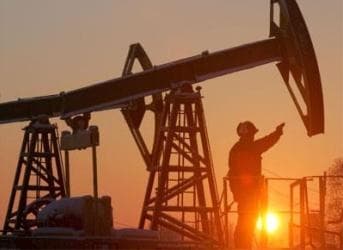It was only a matter of time before Syria’s oil industry, sagging as it may be, became a target in the country’s civil war, a conflict that is rapidly devastating Syria’s infrastructure and economy. The latest casualty is now Syria’s modest oil industry, already suffering from lack of modernization.
In two separate incidents in the past couple of days rebels fighting the regime of President Bashar Assad have announced the capture of an oil pumping station in the northern part of the country in what was described as fierce fighting that raged over several days, and have blown up a natural gas pipeline in the eastern part of the country.
The attacks are no doubt intended to further weaken the government by denying it to use oil revenues to finance the military, currently engaged in trying to put down the 21-month old rebellion.
Reports from the Syrian news agency blamed the attack on the pipeline on a “terrorist group,” the term used by the regime when referring to the rebels.
The London-based Syrian Observatory for Human Rights, for its part issued a statement on Sunday claiming that rebel forces captured the oil pumping station in the province of Raqqa on Sunday. The station receives crude oil from Hassakha and pumps it to the Homs region in central Syria. Syria has two oil refineries, one of which is located in the Homs area.
Related Article: Tracking Syria's Oil Means Tracking Its War
This is not the first time that rebel forces target Syria’ oil, but it demonstrates that the country’s miniscule oil industry has now become a target. A few months ago the rebels had captured a number of oil fields in the Deir el-Zour region, close to the Iraqi border.
Syria’s government-run news agency said on Monday that the attack occurred about 18 miles north of the city of Deir el-Zour. Damages were estimated at around 1.5 million cubic meters of gas.
These attacks come on the heel of a previous attack last week when rebels were reported to have taken control of the al-Tanak oil field, also in eastern Syria.
As in any war, the spoils of war includes civilians; the fighting in Syria is reported to have claimed between 41,000 and 57,000 lives so far. More than 500,000 others have sought shelter in refugee camps in Turkey, Iraq, Jordan and Lebanon. With the advent of winter conditions for many of those refugees will become critical.
Repeated efforts by the international community to find a political solution to the crisis have failed. A peace initiative launched by former United Nations Secretary General Kofi Annan has failed, as have efforts put forward by the Arab League.n Indeed, finding a peaceful solution to the Syrian crisis remains extremely difficult for a variety of reasons.
First, while numerous attempts have been made to unify the opposition, forces opposed to Bashar Assad and the Alawite-dominated regime remain greatly divided over core issues. That, of course, is seen as a plus card by the Syrian government who hopes to capitalize on the opposition’s fractures to solidify its position.
Related Article: How Relevant is Syria's Oil in the Conflict
Second, although the United States and its European allies all want to see the end of the regime, many, including the US, are treading very softly, fearing that the victor in this war could well be an Islamist, pro-al-Qaida faction.
Third, both sides believe they could still defeat the other side militarily and therefore want to hold back on negotiating. The common view being why negotiate and have to give away part of the cake when you can win it all on the battlefield.
As recently as last weekend another attempt to negotiate a ceasefire by Lakhdar Brahimi, who represents the United Nations and the Arab League, failed to bring the two sides any closer.
The one “novelty” in the Syrian conflict is that the situation seems to be heading towards what Brahimi `described as the “Somalization” of Syria and the rule by warlords. This in fact would not a dissimilar to a situati0n that Syria helped establish in neighboring Lebanon when it went through its civil war – one that lasted 19 years.
Brahimi, a veteran diplomat, with a proven track record has however hit a brick wall in trying to bridge the vast schism existing between the numerous militia groups fighting to overthrown Assad.
The rebels are now demanding the unconditional departure of Assad prior to any talks with the government side, a condition that stands very little chance of becoming a reality. While observers in the Syrian conflict will disagree over most issues, the one point they all seem to converge on is that Bashar Assad will not abandon the presidency. At least not on his own free will.
By. Claude Salhani of Oilprice.com
Claude Salhani, a specialist in conflict resolution, is an independent journalist, political analyst and author of several books on the region. His latest book, 'Islam Without a Veil,' is published by Potomac Books. He tweets @claudesalhani.



















Iran, therefore, should take a lesson from Syria as the drama unfolding there is but a preview of what is coming to Iran.
Nor will the regime's usual scapegoating of Israel do anymore; the Information Age has made this little handy technique obsolete. Moreover, the internet is now impervious to full censorship.
When the Iranian people have had enough and turn against the regime, the regime will turn on them, just like Assad has -- preferring to destroy the country rather than yield power. Such is the way of tyrants, even the theocratic ones.
And when their end comes, few of us will shed any tears -- as few of us are now readying any tears for Assad.